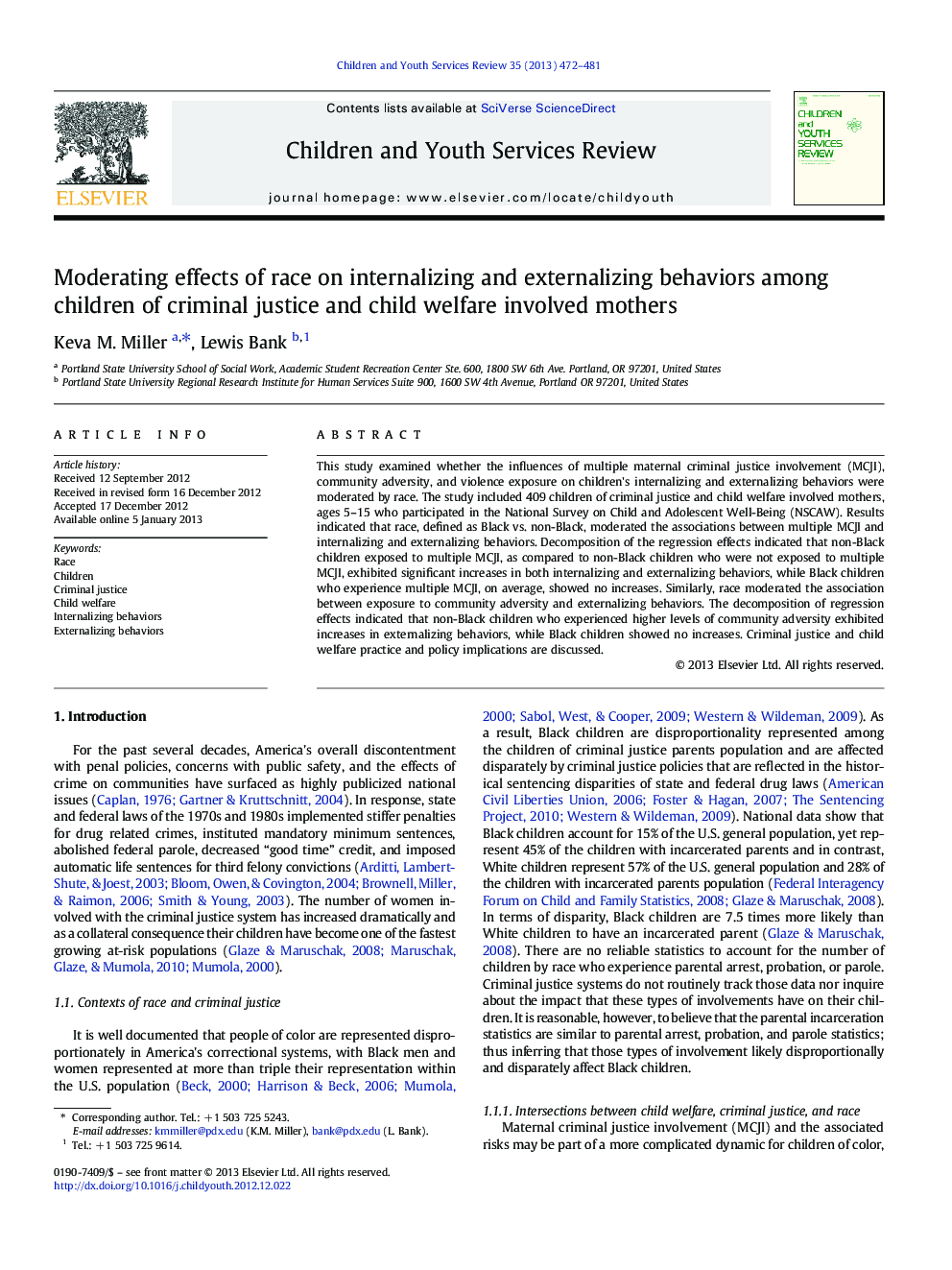| Article ID | Journal | Published Year | Pages | File Type |
|---|---|---|---|---|
| 346413 | Children and Youth Services Review | 2013 | 10 Pages |
This study examined whether the influences of multiple maternal criminal justice involvement (MCJI), community adversity, and violence exposure on children's internalizing and externalizing behaviors were moderated by race. The study included 409 children of criminal justice and child welfare involved mothers, ages 5–15 who participated in the National Survey on Child and Adolescent Well-Being (NSCAW). Results indicated that race, defined as Black vs. non-Black, moderated the associations between multiple MCJI and internalizing and externalizing behaviors. Decomposition of the regression effects indicated that non-Black children exposed to multiple MCJI, as compared to non-Black children who were not exposed to multiple MCJI, exhibited significant increases in both internalizing and externalizing behaviors, while Black children who experience multiple MCJI, on average, showed no increases. Similarly, race moderated the association between exposure to community adversity and externalizing behaviors. The decomposition of regression effects indicated that non-Black children who experienced higher levels of community adversity exhibited increases in externalizing behaviors, while Black children showed no increases. Criminal justice and child welfare practice and policy implications are discussed.
► Data were from the National Survey on Child and Adolescent Well-being (NSCAW). ► Sample consisted of children of child welfare and criminal justice involved mothers. ► Black children were disproportionately and disparately represented. ► Race moderated the associations between risk exposure and children's mental health. ► There are criminal justice and child welfare practice and policy implications.
